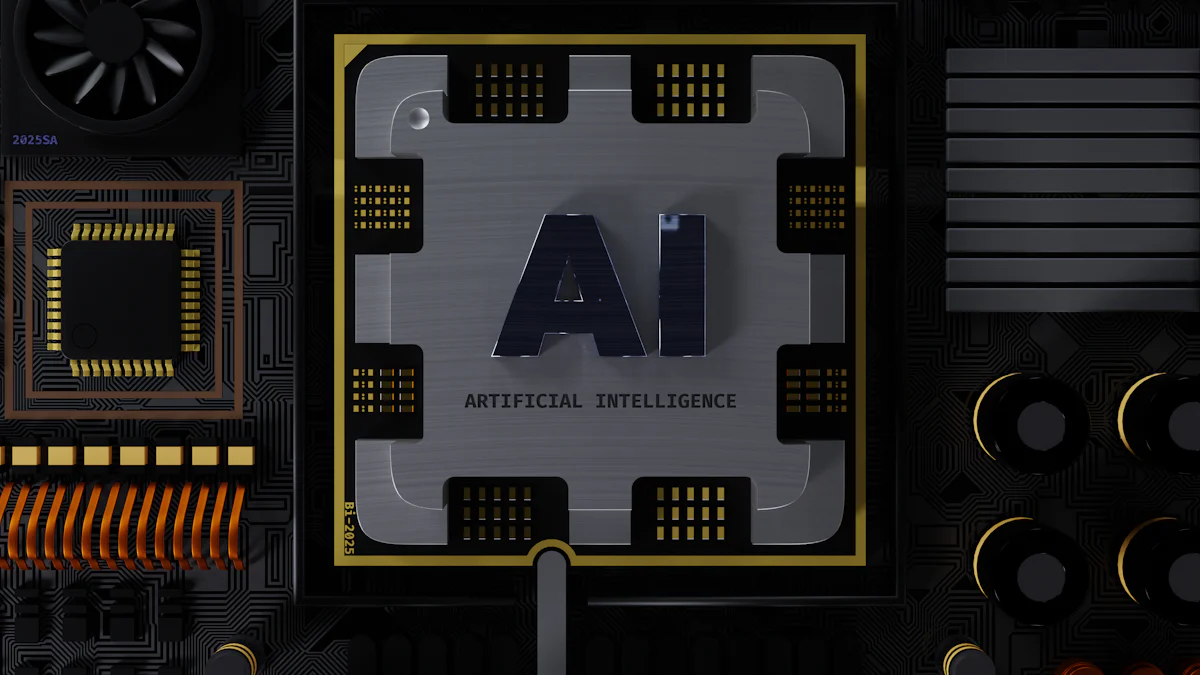Revolutionizing Workflows: AI Automation for Agentic Workflows in 2025

Unleashing the Power of AI Automation in Workflows
In the fast-paced digital landscape of 2025, the integration of AI automation in workflows is revolutionizing how businesses operate. By automating daily, repetitive, and manual tasks, organizations can significantly enhance productivity levels. Tasks that were once time-consuming and prone to human error are now being efficiently managed by AI systems, freeing up valuable human resources for more strategic endeavors.
AI workflow automation plays a crucial role in solving routine task issues that hinder operational efficiency. Whether it's streamlining data entry processes or automating complex analysis tasks, AI technologies are adept at handling these repetitive functions with precision and speed. This not only reduces the likelihood of errors but also ensures that workflows operate seamlessly without bottlenecks.
When building automated workflows, key features must be considered to maximize efficiency and effectiveness. Scalability is essential to accommodate future growth and evolving business needs. Additionally, advanced AI capabilities such as machine learning algorithms enable continuous improvement and optimization within workflows. Integration with existing systems should also be seamless to ensure a smooth transition to automated processes.
Understanding AI Workflow Automation
Benefits of AI Workflow Automation
AI workflow automation offers a myriad of benefits that significantly impact organizational efficiency and productivity. By reducing redundancy and optimizing productivity, businesses can streamline their operations and allocate resources more effectively. Tasks like data entry and analysis, which are traditionally time-consuming and error-prone, can now be handled swiftly and accurately by AI systems. This not only saves time but also ensures data integrity and consistency across workflows.
In the realm of supply chain activities, AI workflow automation plays a crucial role in enhancing operational processes. From inventory management to logistics optimization, AI technologies enable real-time decision-making based on accurate data analysis. By automating routine tasks within the supply chain, businesses can minimize delays, reduce costs, and improve overall efficiency.
Key Features for Building Automated Workflows
When implementing AI automation in workflows, several key features must be considered to ensure seamless integration and optimal performance. Ease of use is essential to facilitate user adoption and minimize training requirements. Intuitive interfaces and user-friendly tools contribute to the successful implementation of automated workflows.
Scalability is another critical feature that enables workflows to adapt to changing business needs and accommodate growth over time. As organizations evolve, their workflow requirements may change; therefore, scalable automation solutions are essential for long-term success.
Advanced AI capabilities such as machine learning algorithms enhance the efficiency of automated workflows by enabling predictive analytics and continuous improvement. These capabilities allow businesses to optimize processes, make data-driven decisions, and stay ahead of the competition.
Furthermore, easy integration with existing systems is paramount for a smooth transition to automated workflows. Compatibility with legacy systems ensures minimal disruption to ongoing operations while maximizing the benefits of AI automation.
Implementing AI Automation in Business Processes with NewOaks AI
As businesses strive for operational excellence in 2025, the implementation of AI automation in business processes becomes paramount. NewOaks AI offers a comprehensive solution for organizations looking to streamline their workflows and enhance efficiency through automation.
Identifying Suitable Business Processes
To successfully integrate AI automation into business processes, it is crucial to identify suitable tasks and workflows that can benefit from automation. This process begins with evaluating existing processes to determine areas where automation can bring the most significant impact. Rule-based tasks that are repetitive and time-consuming are prime candidates for AI implementation, as they can be efficiently performed by machines, reducing human dependency and minimizing errors.
By automating feedback loops within business processes, organizations can continuously improve their operations based on real-time data insights. This iterative approach allows for ongoing optimization and refinement of workflows, leading to enhanced productivity and performance. Moreover, ensuring compliance with industry regulations and implementing real-time monitoring mechanisms are essential aspects of successful AI automation implementation.
Expert opinions from thought leaders like Alex York emphasize the transformative power of AI workflow automation in replacing manual tasks with machine-performed activities. By leveraging AI technologies to handle repetitive tasks, businesses can save time, reduce errors, and allocate human resources to more strategic initiatives.
In the next section, we will delve into how embracing the future of work with AI automation can further optimize decision-making processes and prepare organizations for the transformative impact of advanced technologies on workflows.
Embracing the Future of Work with AI Automation
In the dynamic landscape of 2025, businesses are embracing AI automation to revolutionize their workflows and drive operational excellence. By enhancing productivity and efficiency in business processes, organizations can achieve higher levels of output while reducing manual errors and streamlining operations. AI automation not only accelerates task completion but also frees up human resources to focus on strategic initiatives that require creativity and critical thinking.
Moreover, AI automation plays a pivotal role in optimizing decision-making processes within organizations. By leveraging data-driven insights generated through automated workflows, businesses can make informed decisions quickly and effectively. This leads to improved outcomes, better resource allocation, and a competitive edge in rapidly evolving markets.
As businesses prepare for the transformative impact of AI in workflows, it is essential to stay ahead of technological advancements and embrace innovation. By integrating AI technologies into everyday operations, organizations can future-proof their workflows and adapt to changing market dynamics with agility and resilience.
Embracing the future of work with AI automation is not just a trend; it is a strategic imperative for organizations looking to thrive in an increasingly digital world. By harnessing the power of AI technologies, businesses can unlock new opportunities, drive growth, and stay ahead of the curve in an ever-evolving business landscape.
See Also
Revolutionizing Call Center After-Hours Service with AI Technology
PDF Chatbots: Future Trends in Automation, Scalability, and Integration
AI Sales Chatbots: Analyzing Automation Solutions for URL Bots
Discovering Top WhatsApp Bots: AI Chatbot Trends in 2024
Boost Your Shopify Store with AI Chatbots for Instant Customer Assistance in 2024

